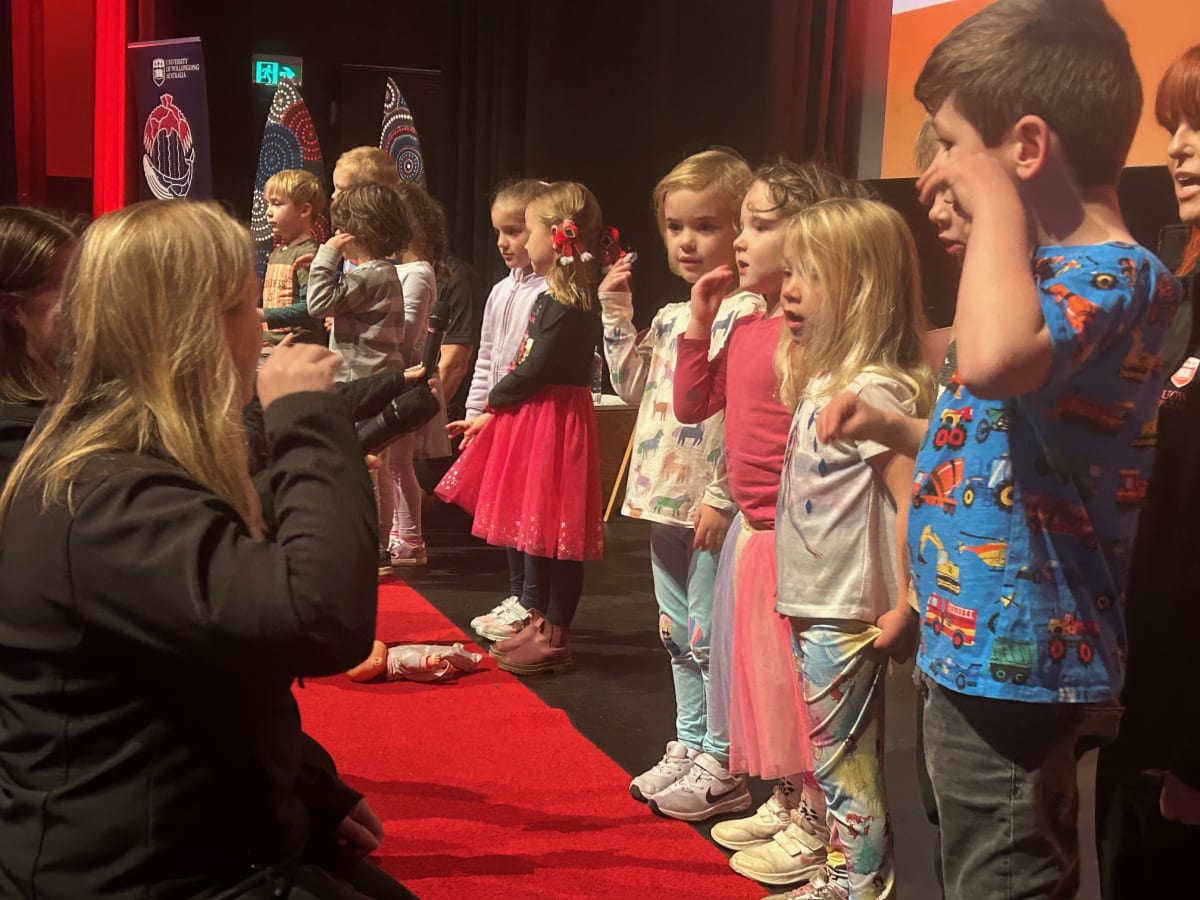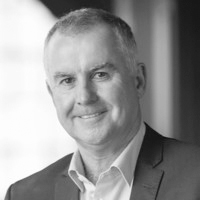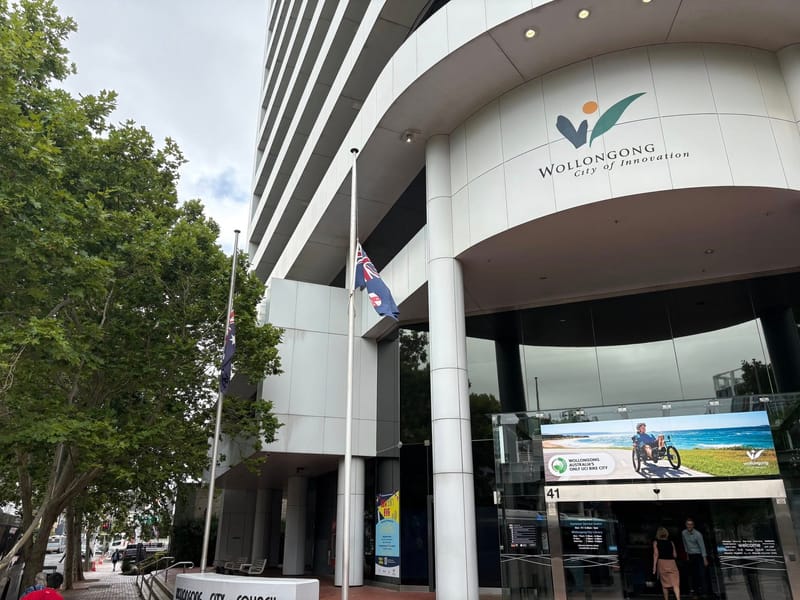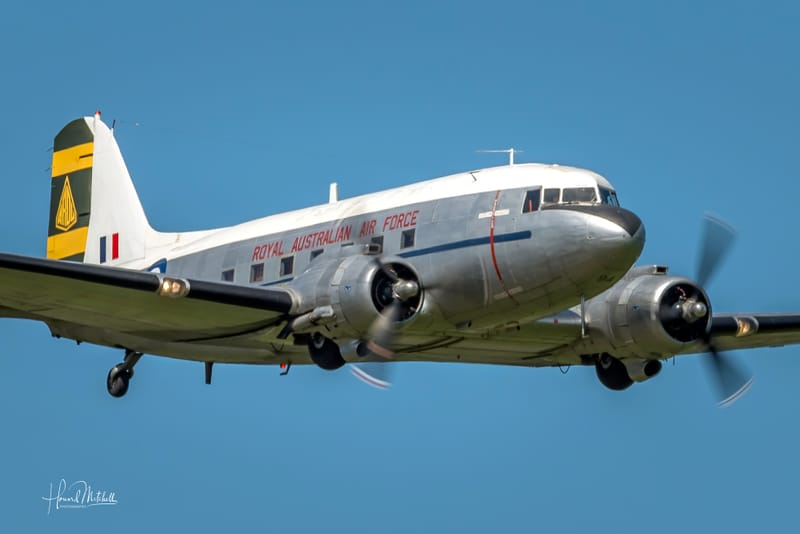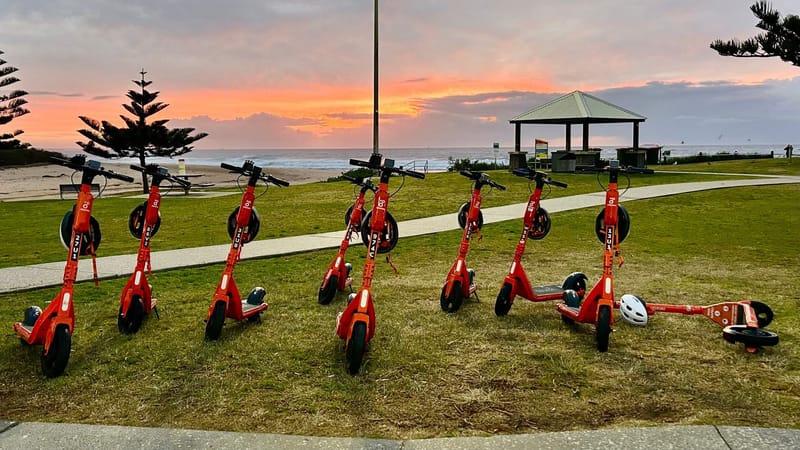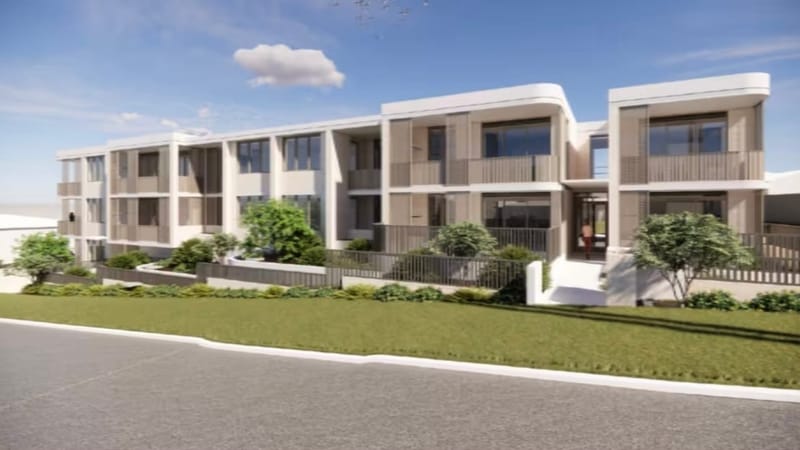Allyship Summit celebrates ‘the 6.2 million friends we didn’t know we had’
"Stay true to Uluru." Those four words were the rally cry coming from a gathering of 200 Indigenous and non-Indigenous leaders in Wollongong to mark World Allyship Day. World Allyship Day was created on the eighth day of the eighth month to...
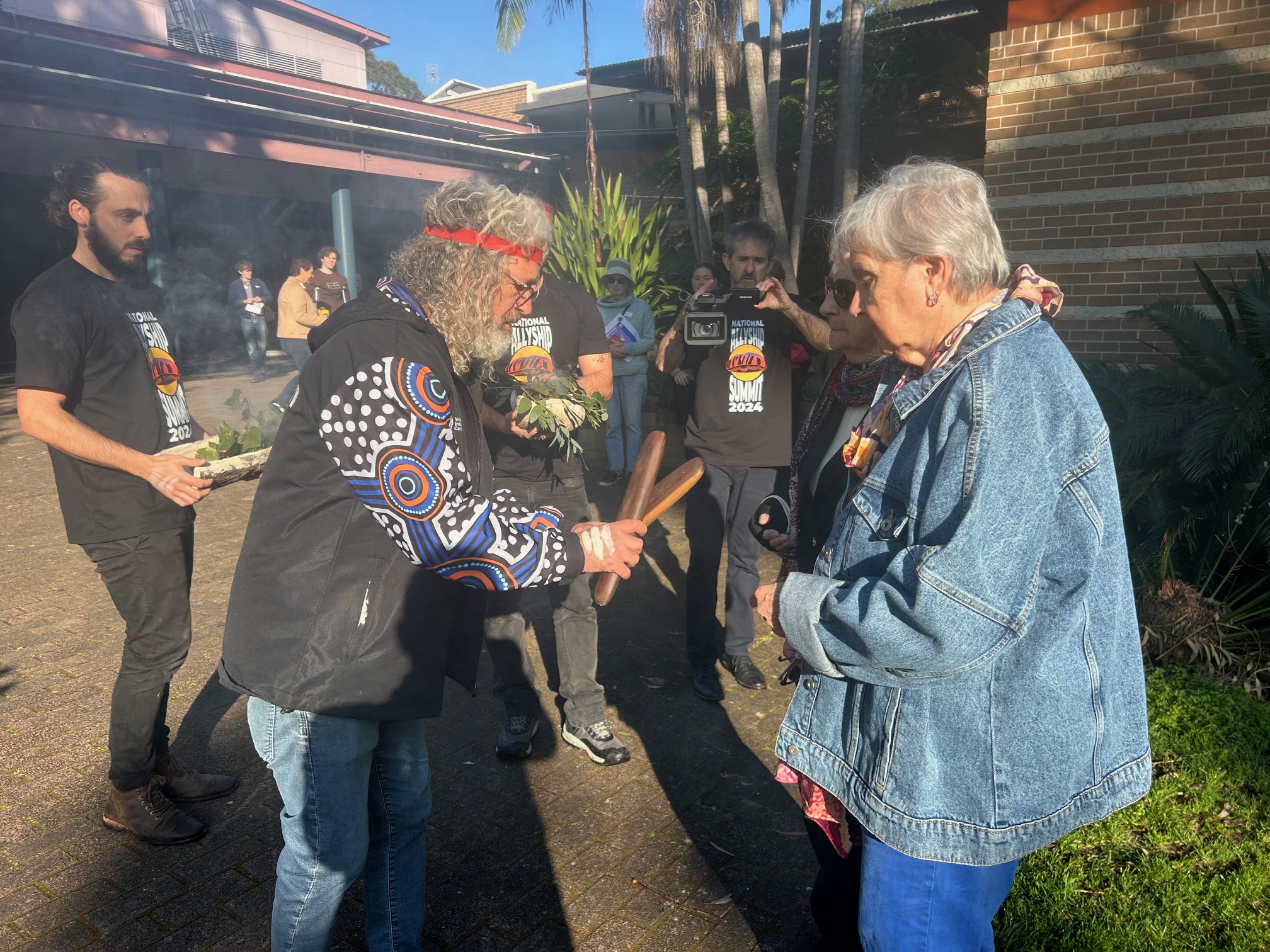
"Stay true to Uluru."
Those four words were the rally cry coming from a gathering of 200 people in Wollongong to mark World Allyship Day.
World Allyship Day was created on the eighth day of the eighth month to celebrate and promote the power of allyship across the globe.
Following a moving smoking ceremony in the crisp early morning on the University of Wollongong (UOW) campus, our 2024 Citizen of the Year, respected elder Dr Aunty Barbara Nicholson, provided the Welcome to Country at the first National Allyship Day Summit.
Gutted by the result of the 2023 Voice referendum, Aunty Barb confessed that she’d asked herself why she should continue to accept invitations to do "Welcomes".
Over time she realised "to not do Welcomes just keeps us invisible", Aunty Barb said.
In her keynote address, Indigenous leader, Uluru Dialogue co-chair Aunty Pat Anderson AO, reflected on a lack of commitment from the federal government since the "heartbreaking" referendum defeat and the comments made by PM Albanese at the Garma Festival about his commitment to the Makarrata.
"I’m certainly getting a sense of déjà vu. That familiar feeling when retail politics and short-termism start to motivate the abandonment of a key Indigenous reform," Aunty Pat said.
"I worry that we will see the Makarrata baby thrown out with the referendum bathwater.
"I hope I’m wrong, but we’ve seen that politicians can be fair weather friends, and when I see that, it makes me more grateful for our steadfast allies."
Aunty Pat said the greatest thing to come from the referendum was discovering "we have 6.2 million friends we didn’t know we had".
The importance of allies
UOW Vice President (Indigenous Strategy & Engagement) and the leader of Woolyungah Indigenous Centre, Jaymee Beveridge, spoke of the importance of allies, especially after the disappointment of the referendum result.
"Today, we come together to discuss and deepen our understanding of allyship and to explore how we can collectively support the Voice, Treaty, and Truth processes outlined in the Uluru Statement from the Heart. Our goal is to foster meaningful dialogue, build stronger relationships, and inspire action towards justice and equity for Aboriginal and Torres Strait Islander peoples," Jaymee said.
South Coast Labour Council president Arthur Rorris reflected on referendum day, and the counting of votes on the night.
A feeling of solidarity
"On the night, we didn’t really like what we were seeing up there in the town hall with the numbers on the board. But the feeling of solidarity in the room was just incredible and even though we had lost the vote nationally we knew we had a lot of friends, and a lot of solidarity and hope," Arthur said.
The trade union leader said allyship was the future and was the only way to counter the type of division created by the No campaign
"They want misery to be the currency and continue to be the focus. They don’t want people reflecting on the present or the future. They want to keep dividing. We can offer something those people will never be able to do, and that is a future, and that’s where the hope comes from."
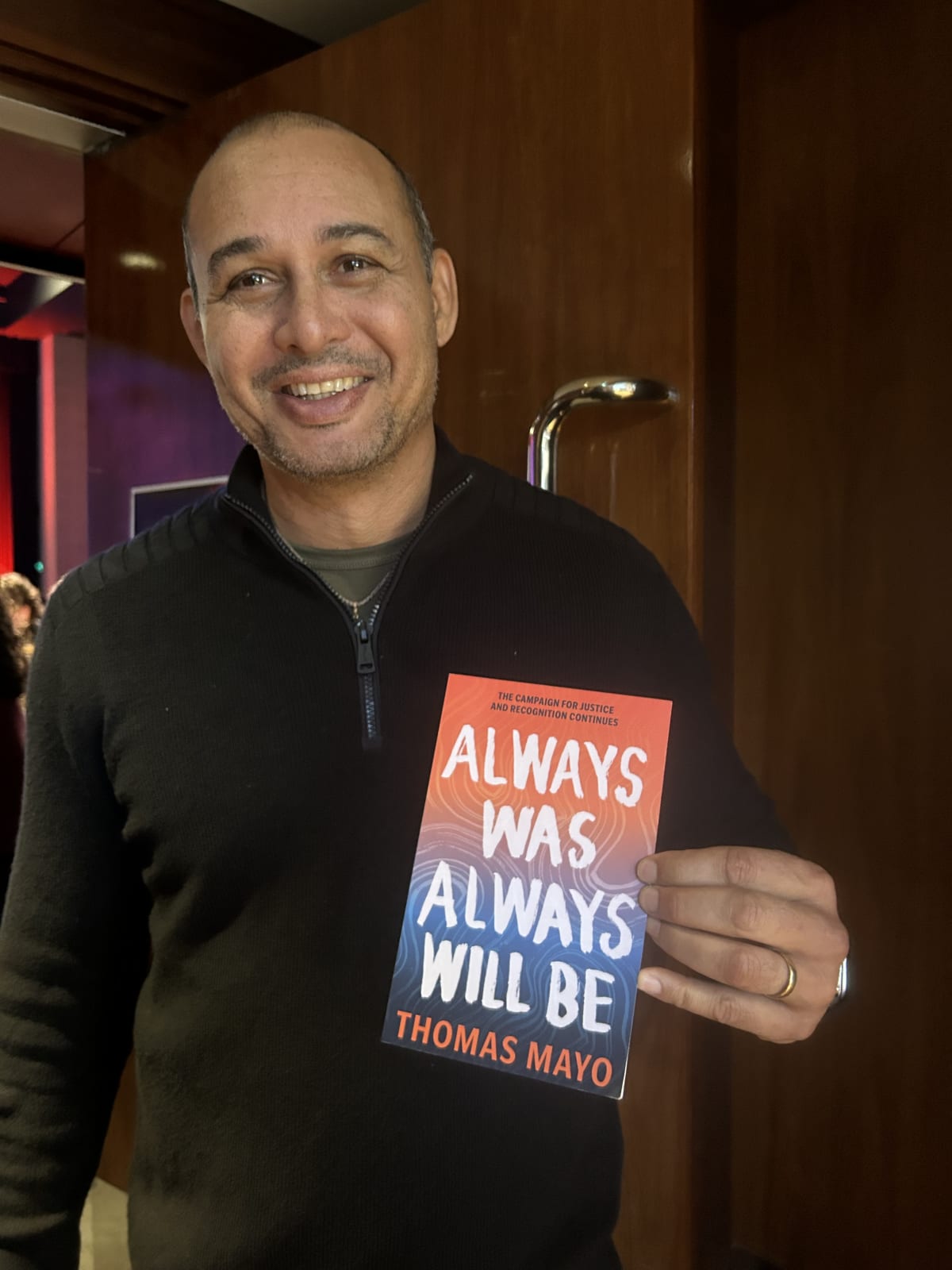
A challenge for young people
One of the leaders of the national Yes campaign, author and activist Thomas Mayo, challenged the many young people who voted Yes in the referendum to step up.
Thomas’s soon-to-be released book, Always Was, Always Will Be, dedicates the first chapter to ‘hope’.
Jaki Adams, who leads Social Justice at the Fred Hollows Foundation, told the summit, "Hope is what keeps me going; it’s what drives me."
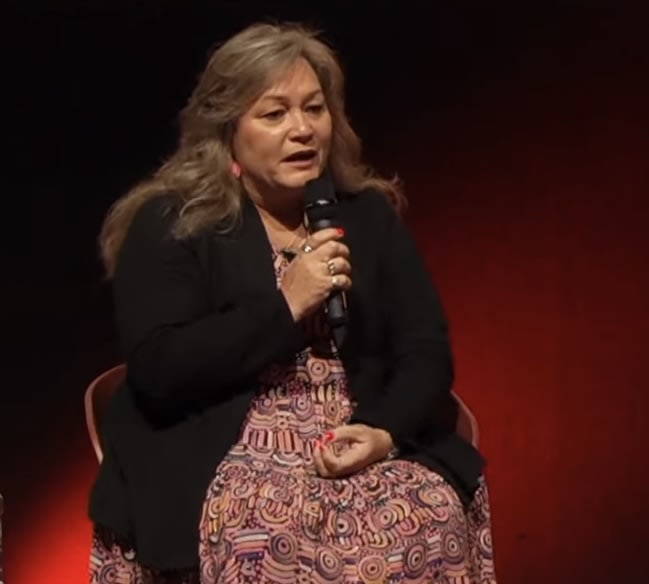
Researcher and author Professor Bronwyn Fredericks said despite the dominance of the ‘No’ vote, supporters of the Uluru Statement should take heart.
"We have 6.2 million friends. Don’t be strangers, allies – and bring others into your circle," Bronwyn said.
"Stay true to Uluru. Policies and politicians come and go. But we will always be here."
Thomas Mayo agreed: "Don’t be afraid to introduce friends to our people and our culture. A lot of people voted No in the referendum because they didn’t know us."
Dealing with misinformation
Human rights activist Craig Foster told the summit one of the biggest challenges is dealing with "the proliferation of misinformation".
"This is a big challenge … and our inability to have difficult conversations. We’ve lost that ability and it’s something we have to nurture in the next generation.
"The question is, how do we get Australia to be prepared to actually act and do what is right?"
Craig encouraged allies "to be part of a movement".
"We want to be part of a tribe. Six million people in Australia wanted immensely positive transformation. Six million people is a hell of a lot. Six million people is a movement, and I’m inspired by First Nations people now bringing all six million of us along."
Faye Worner, chief operating officer from Waminda, said everyone had a responsibility to fully engage in the conversation. And to walk beside and behind, constantly working on decolonising thought and action.
Engage in truth telling
"Engage in a truth telling process in this country and ensure as allies that we are learning and reeducating ourselves and locating ourselves in our own history and taking responsibility for that," Faye said.
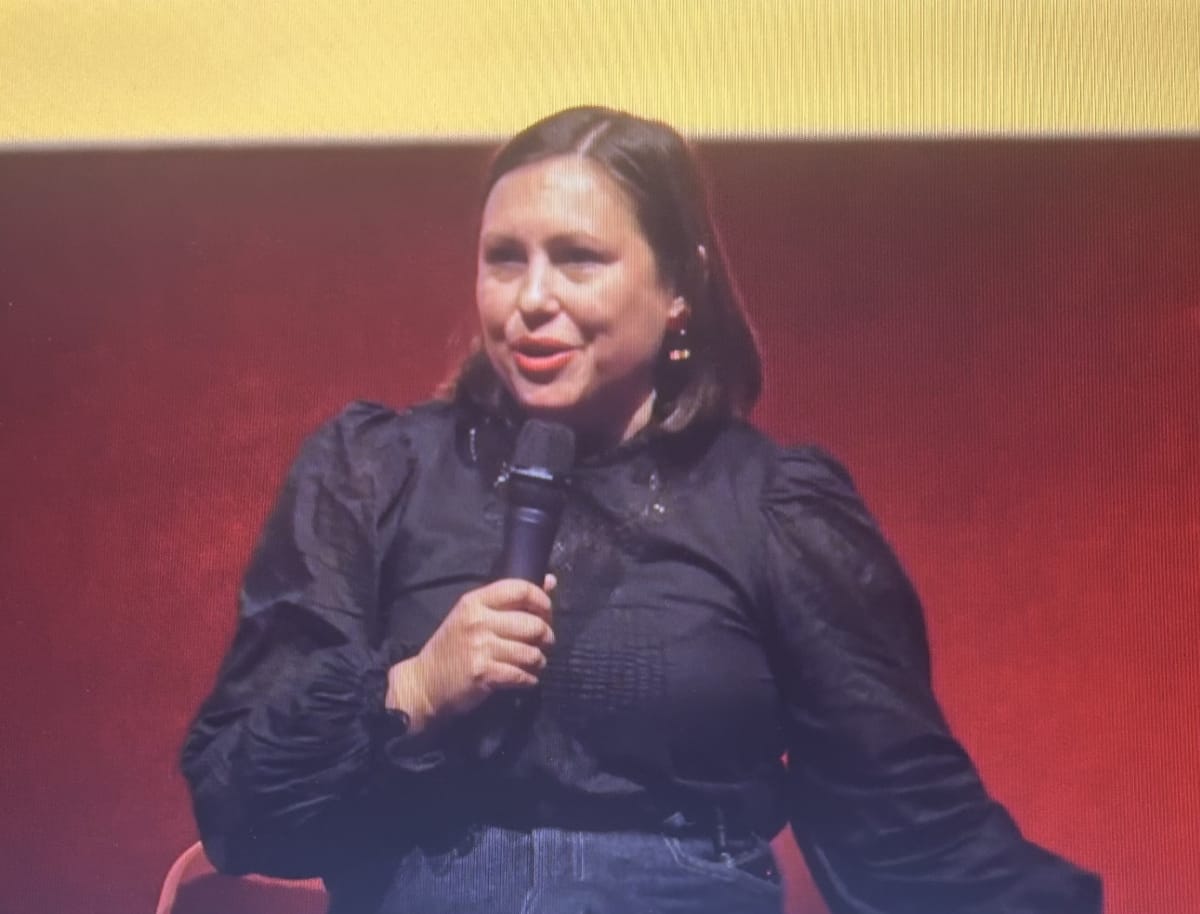
Yorta Yorta woman Dr Summer May Finlay said the failure of the referendum, failing to give First Nations people a Voice, took away the best opportunity to Close the Gap.
"We have children living and not knowing their identity. We have people taken out of their communities and incarcerated," Summer May said.
"We can’t, even in a wealthy country, make sure we have enough adequate housing for mob. And the suicide rate is a symptom of all the stuff that’s going on in this country.
"That is why our allies are hugely important. We’re three per cent of the population. We can’t do this alone and you know that.
"What does it take to get substantive change?
"We need a seismic shift in the way we’re currently addressing things in this country. And again, the lion’s share of the burden should not be on Aboriginal and Torres Strait Islander people. It should be on the 97 per cent."
Needing to know where is safe
In closing the summit, the UOW’s Conscious Community Lead, Catherine Moyle, said she took time out after the referendum to study the outcome in detail, downloading the results for each polling booth in the Illawarra "to see which ones were basically crap".
"Because I needed to know where it was safe for me and for my children.
"I’m so proud that in the Illawarra, particularly in the northern suburbs, that I knew that there was safety for me there."
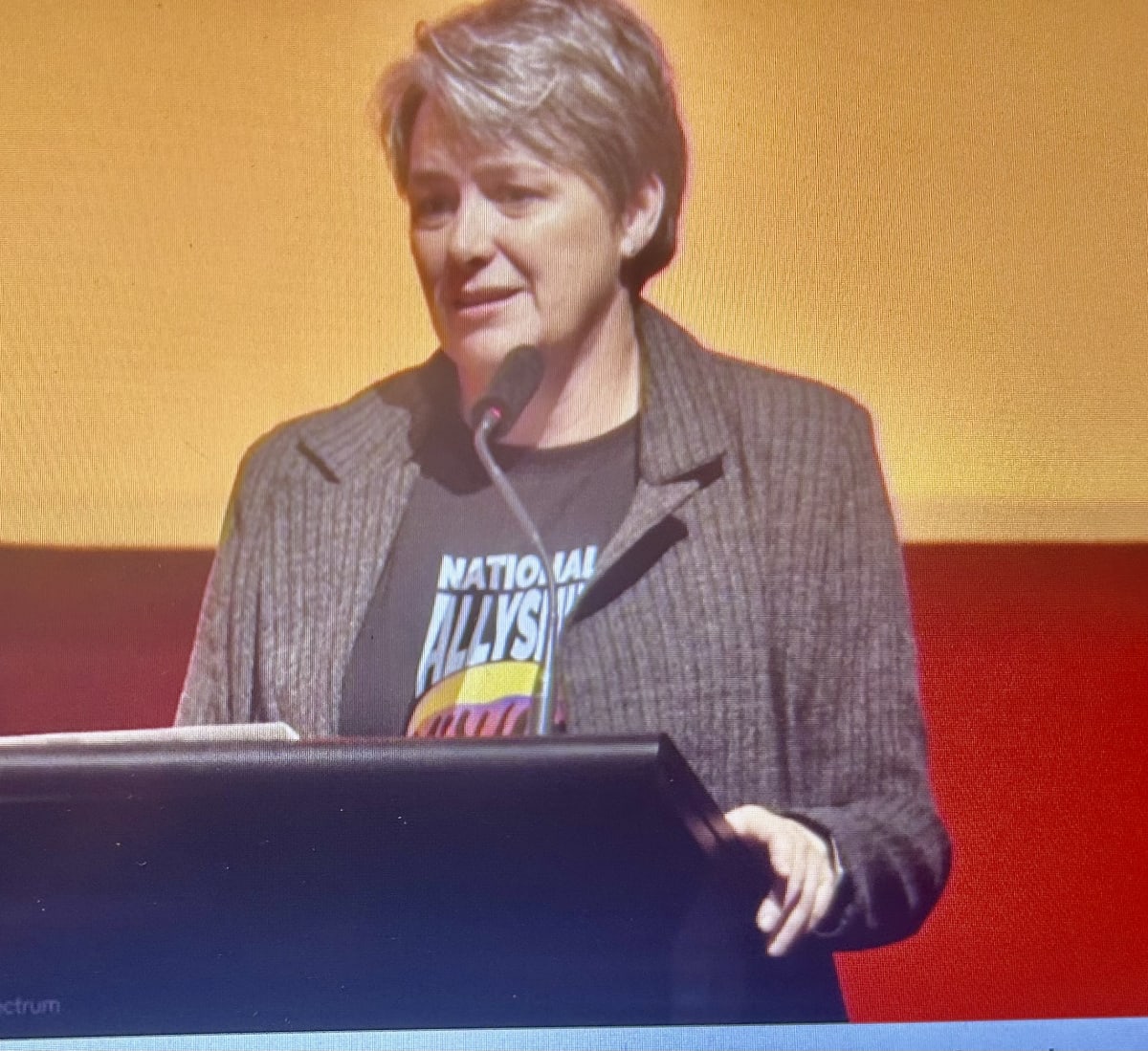
Catherine reinforced the importance of allies staying strong, despite the challenges they face.
"If I’m Aboriginal all of the time, and I think that I am," she said, tongue in cheek, "then you’re allies all of the time, in all contexts and in all roles collectively."
The summit provided the opportunity for the 200 attending in person and a similar number online to exchange ideas about how allies can better understand and support First Nations people.
Another highlight of the day was UOW’s youngest cohort, the preschoolers from Kids Uni.
They presented their own version of an Acknowledgement of Country, proving you’re never too young to be an ally.
